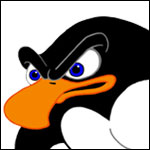 Typically when Google launches a new algorithm update, it is over pretty fast and everyone is scrambling to figure out what to do next. This certainly has not been the case with Google Penguin 3. We’ve been seeing a lot of activity around sites impacted by Google’s Penguin algorithm over the past few weeks.
Typically when Google launches a new algorithm update, it is over pretty fast and everyone is scrambling to figure out what to do next. This certainly has not been the case with Google Penguin 3. We’ve been seeing a lot of activity around sites impacted by Google’s Penguin algorithm over the past few weeks.
When Barry, of SEO Roundable, asked Google about this, Google commented:
“That last big update is still rolling out – though really there won’t be a particularly distinct end-point to the activity, since Penguin is shifting to more continuous updates. The idea is to keep optimizing as we go now.”
So to me this sounds like instead of a big update, they are going to continue to roll out small updates and tweaking the results until they are happy with what they are seeing. Many people are seeing pretty large fluctuations because of this.
Here are what we know about Penguin 3.0 releases so far. Penguin 3.0 on October 17, 2014, Penguin 3.1 on November 27, 2014, Penguin 3.2 on December 2, 2014, Penguin 3.3 on December 5, 2014 and Penguin 3.4 on December 6, 2014.
We will keep you posted.
Are Google Ads Pay Per Click?
Yes, Google Ads operates on a pay-per-click (PPC) basis. This means that businesses will pay for each click that is generated by their ads. The cost of each click will depend on the type of campaign and the targeting options selected. Google Ads also offers businesses access to powerful analytics and reporting tools, allowing them…
Why would someone use Google Ads instead of Facebook Ads?
Let’s talk about Google Ads and Facebook Ads. Each has its own pluses and minuses. Here is how we see it. Google Ads is intent-based. What does intent-based mean? Simply put, people know what they are searching for and are going to find it. For example, if I am looking to tint my car, I…
What is Search Engine Optimization? Will a Plug-in Do it For me?
Search Engine Optimization or SEO is the process of optimizing your website for keywords related to your business—for example, Jacksonville Web Design Company. It involves added your keywords in the page title, descriptions, and strategically in the content. That part of the process is called on-site optimization. The other part of SEO is called Off-page…
